1. Egg:
Eggs stand as a nutritional powerhouse for gaining weight, boasting a blend of protein and healthy fats essential for muscle development.
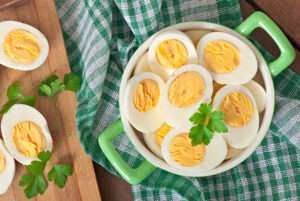
Protein and Healthy Fat Content:
– Eggs provide high-quality protein, crucial for muscle repair and growth.
– Rich in healthy fats, including omega-3s, supporting overall health and hormone production.
Versatile Ways to Prepare Eggs for a Bulking Diet:
– Enjoy eggs scrambled, boiled, poached, or as omelets.
– Incorporate them into meals like breakfast burritos, salads, or sandwiches for a delicious and protein-packed addition to your weight gain diet.
Nutrient | Per 100g |
Calories (kcal) | 155 |
Protein (g) | 13 |
Fat (g) | 11 |
Carbohydrates (g) | 1 |
Fiber (g) | 0 |
Sugar (g) | 1 |
2. Milk:
Whole milk emerges as a calorie and nutrient-dense ally in the bulking journey, offering a substantial boost to your daily intake.
Calorie and Nutrient Density of Whole Milk:
– Whole milk is a rich source of calories, aiding in achieving the necessary surplus for bulking.
– Packed with essential nutrients like calcium, vitamin D, and protein, contributing to overall muscle and bone health.
Recommended Ways to Consume Milk for Effective Bulking:
– Drink whole milk on its own or use it as a base for shakes and smoothies.
– Pour it over cereal, add it to coffee, or use it in cooking to seamlessly incorporate the benefits of whole milk into your diet.
By incorporating eggs and milk into your diet, you leverage a nutrient-dense duo that supports muscle growth and provides the essential building blocks for a robust physique.
Nutrient | Per 100g |
Calories (kcal) | 61 |
Protein (g) | 3.2 |
Fat (g) | 3.3 |
Carbohydrates (g) | 4.8 |
Fiber (g) | 0 |
Sugar (g) | 5.1 |
3. Peanut Butter:
Peanut butter, in its various forms such as almond, peanut, or cashew butter, emerges as a flavorful and nutrient-rich addition to your diet.
Varieties of Nut Butters:
– Explore a variety of nut butters to diversify your nutrient intake.
– Almond, peanut, and cashew butter not only offer healthy fats and protein but also bring distinct flavors to your meals.
Benefits of Healthy Fats and Protein for Muscle Growth:
– Rich in healthy fats, nut butters provide a calorie-dense source for bulking.
– The combination of healthy fats and protein supports muscle growth, making nut butters a versatile and tasty asset to your bulking journey.
Nutrient | Per 100g |
Calories (kcal) | 588 |
Protein (g) | 25.1 |
Fat (g) | 50.6 |
Carbohydrates (g) | 20.3 |
Fiber (g) | 6 |
Sugar (g) | 3.2 |
4. Oats:
Oats, a nutritional powerhouse, play a crucial role in your bulking strategy, offering high-calorie content and complex carbohydrates.
High-Calorie Content and Complex Carbohydrates:
– Oats are calorie-dense, providing energy for intense workouts and muscle recovery.
– Packed with complex carbohydrates, they offer a sustained release of energy, crucial for maintaining energy levels during bulking.
Ideas for Incorporating Oats into Meals:
– Start your day with oatmeal topped with fruits, nuts, and a dollop of yogurt.
– Add oats to smoothies, protein shakes, or use them in recipes for homemade energy bars to boost your calorie intake effectively.
Nutrient | Per 100g |
Calories (kcal) | 389 |
Protein (g) | 16.9 |
Fat (g) | 6.9 |
Carbohydrates (g) | 66.3 |
Fiber (g) | 10.6 |
Sugar (g) | 0.8 |
By including peanut butter and oats in your bulking diet, you introduce a dynamic duo that not only contributes to your daily caloric needs but also provides essential nutrients vital for muscle growth and sustained energy.
5. Avocado:
Avocado, a nutritional powerhouse, takes a prominent place in your bulking arsenal, offering healthy fats and nutrient density.
Healthy Fats and Nutrient Density:
– Avocados are rich in monounsaturated fats, supporting overall health and providing a calorie-dense option for bulking.
– Packed with essential nutrients like potassium, vitamins, and fiber, avocados contribute to the nutritional density of your bulking diet.
Creative Ways to Incorporate Avocado into Meals:
– Add sliced avocado to salads, sandwiches, or wraps for a creamy and nutritious touch.
– Blend avocado into smoothies or spread it on whole-grain toast as a delicious and high-calorie snack.
Nutrient | Per 100g |
Calories (kcal) | 160 |
Protein (g) | 2 |
Fat (g) | 14.7 |
Carbohydrates (g) | 8.5 |
Fiber (g) | 6.7 |
Sugar (g) | 0.7 |
6. Wheat Bread:
Wheat bread, particularly in its whole-grain form, emerges as a staple for bulking, offering complex carbohydrates and fiber.
Complex Carbohydrates and Fiber Content:
– Whole-grain wheat bread provides complex carbohydrates, fueling your body with sustained energy for workouts and muscle recovery.
– High fiber content aids digestion and contributes to the feeling of fullness, assisting in the calorie surplus required for bulking.
Choosing Whole-Grain Options for Added Nutritional Benefits:
– Opt for whole-grain wheat bread to maximize nutritional benefits.
– Use it for sandwiches, toast, or as a side to complement your meals, ensuring a wholesome addition to your high-calorie bulking diet.
Nutrient | Per 100g |
Calories (kcal) | 247 |
Protein (g) | 8.9 |
Fat (g) | 2.7 |
Carbohydrates (g) | 49 |
Fiber (g) | 6.9 |
Sugar (g) | 2.4 |
By incorporating avocado and whole-grain wheat bread into your bulking diet plan, you not only enhance your calorie intake but also introduce essential nutrients crucial for sustained energy, muscle growth, and overall well-being.
7. Sweet Potato:
Sweet potatoes, a nutritional powerhouse, become a high-calorie carbohydrate source essential for your bulking diet plan.
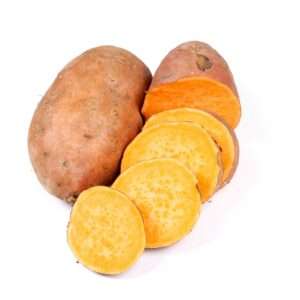
High-Calorie Carbohydrate Source:
– Sweet potatoes offer complex carbohydrates, providing a sustained energy source for your workouts and bulking efforts.
– Packed with vitamins, minerals, and fiber, they contribute to overall nutrition during your bulking phase.


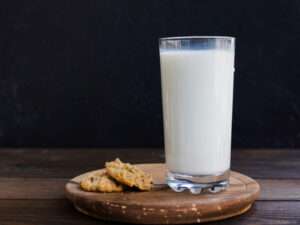
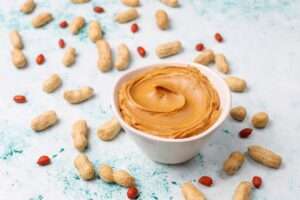
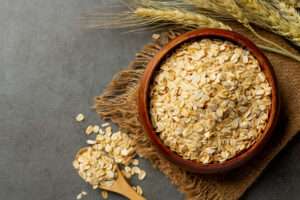
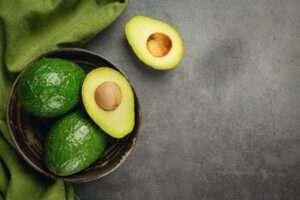
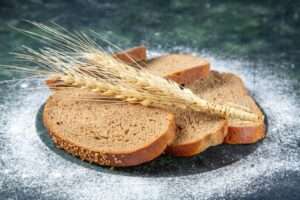

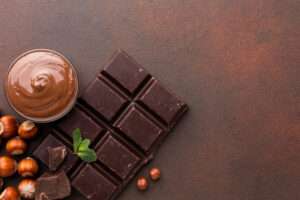

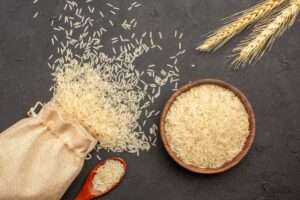
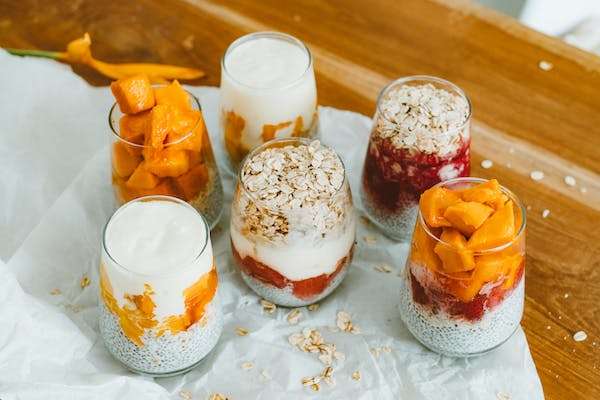
Pingback: 4 Scientifically Proven Weight Gain At Home Tips! Weight Gain Made Easy |